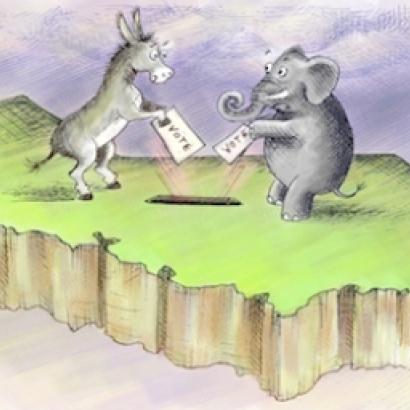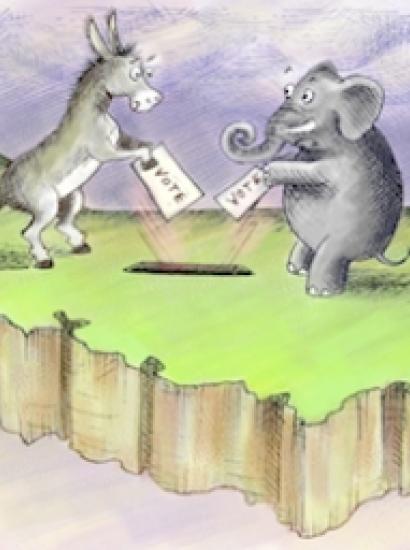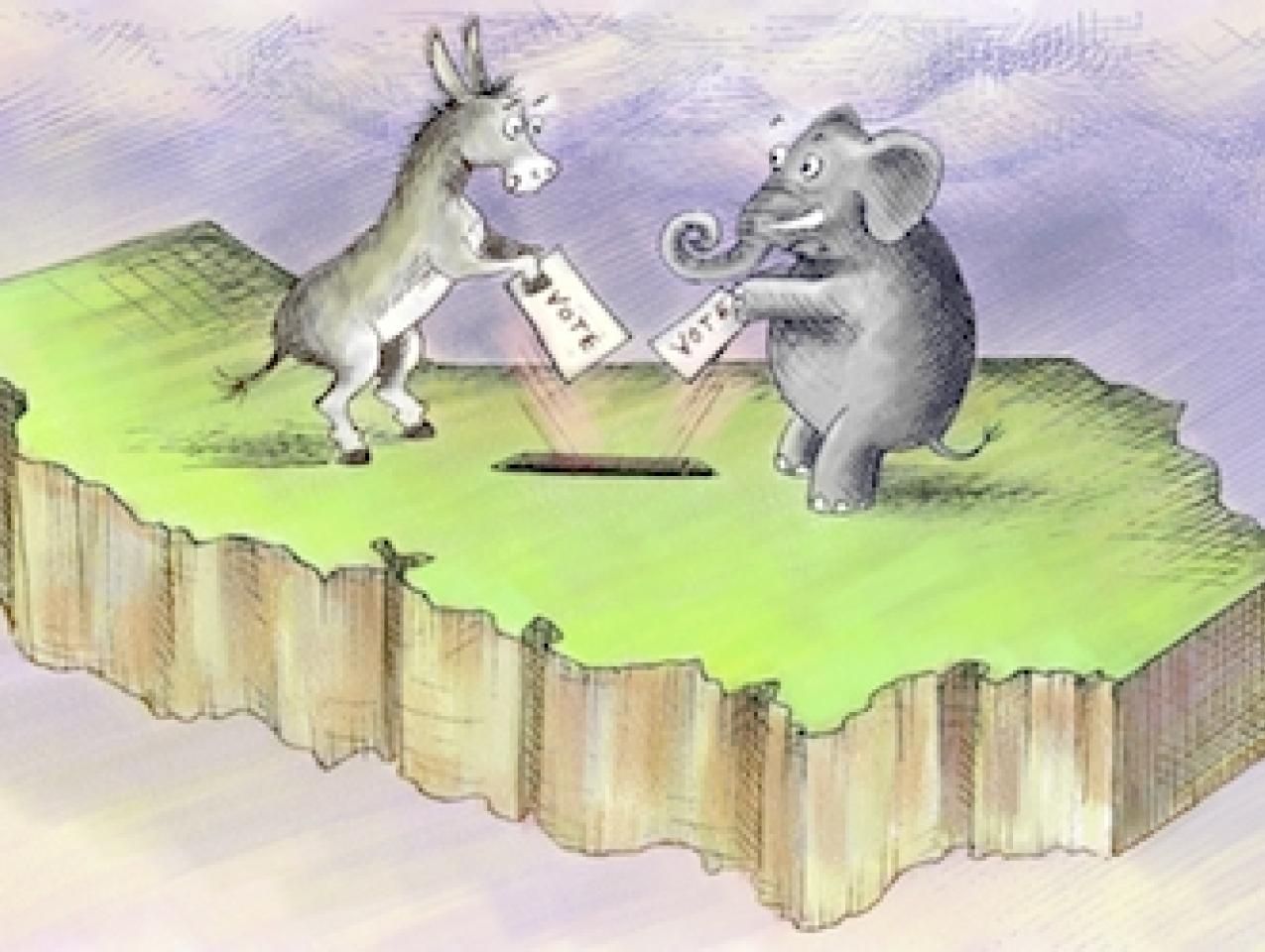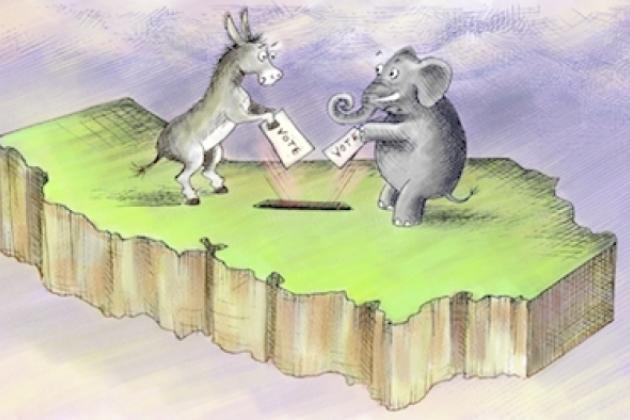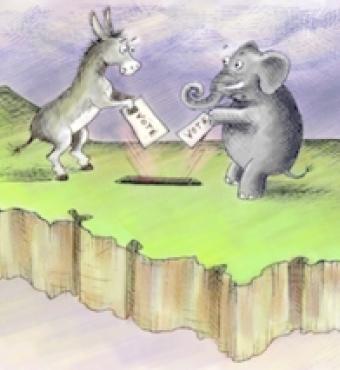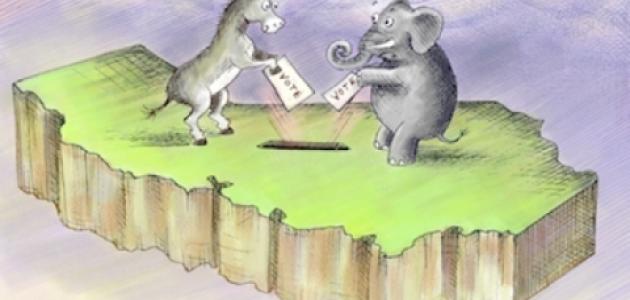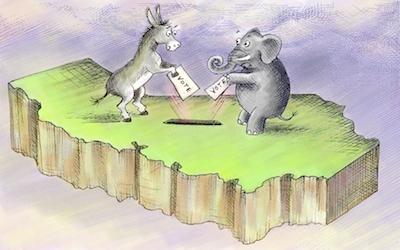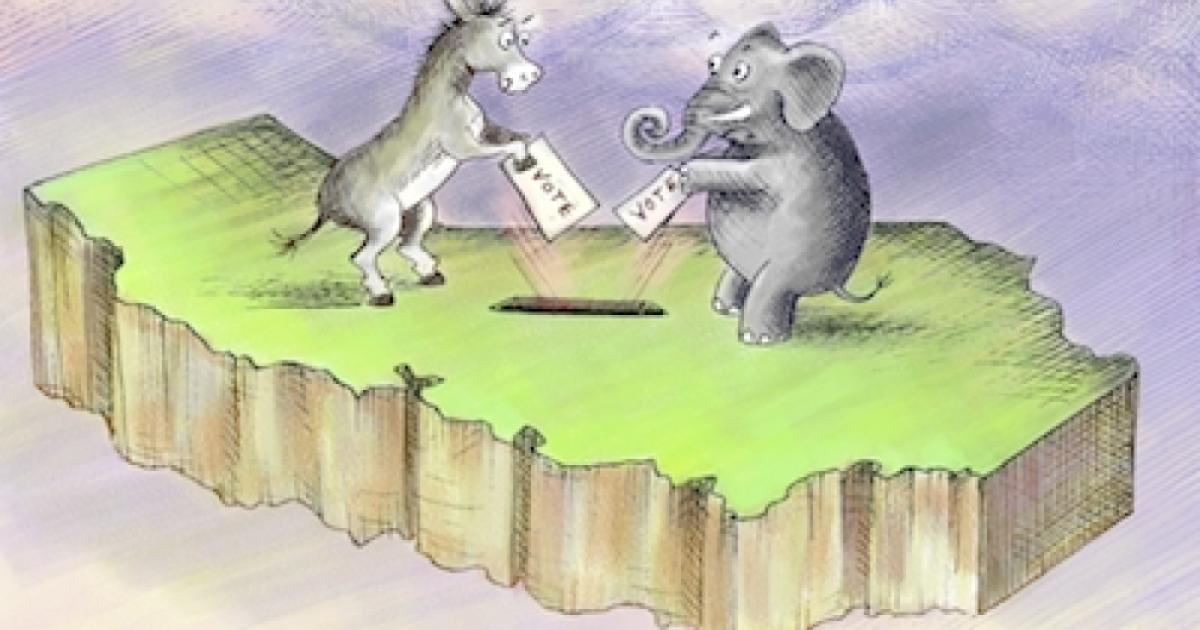Editor’s Note: Earlier this month, the Hoover Institution’s Golden State Poll—a partnership between Hoover and the online polling firm YouGov—surveyed 1,000 Californians on economic and political issues.
Next Tuesday, Californians go to the polls to vote in the gubernatorial primary elections. Under the new top-two primary system in California, all state races—both legislative and constitutional offices—no longer have separate partisan primaries. Instead, the top two finishers, regardless of party affiliation, automatically advance to the November general election. Although the system was in effect in 2012, this year marks the first time that new rules also apply to California’s seven partisan statewide offices.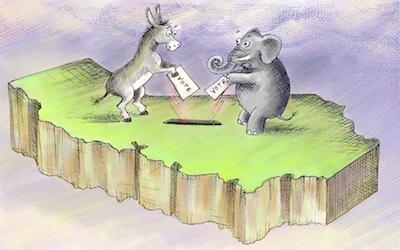
The principal rationale behind Proposition 14—the 2010 ballot measure that created the open primary process—was to increase ideological moderation in California politics. In theory, a candidate looking to finish in the top two needs to build beyond a partisan base. In turn, that makes for more centrist positioning leading to less ideological rigidity, hence alleviating partisan bickering and legislative gridlock.
So far, Californians aren’t so enamored by the new system. According to the recently released May Golden State Poll (click here to read the results), a plurality of self-identified registered voters (45 percent) said the open primary will not “lead to progress on important public policy issues” in California.
Needless to say, the open primary creates a new electoral calculus for many candidates—save one: Governor Jerry Brown. While the Golden State Poll reinforces the narrative of Brown cruising to re-election, it also suggests his strong showing masks issues Californians want seriously discussed. In his quest for a historic fourth term, Brown is 24 points ahead of his nearest competitor, State Assemblyman Tim Donnelly. Donnelly, in turn, leads his main Republican opponent, former Treasury official and businessman Neel Kashkari, by 7 points. Brown performs exceptionally well with Democrats (68 percent), and he manages to grab 8 percent of Republicans, which is just 3 points fewer than Kashkari. Among self-identified conservatives, Brown even manages to tie Kashkari, with 11 percent apiece.
Perhaps more intriguing is the electorate’s rationale for awarding Brown that fourth and final term. By over a 2-to-1 ratio, pro-Brown supporters say they’re voting for the governor rather than against his Republican opponents. In addition, 62 percent of Brown supporters say their mind “is made up.”
Electorally, this is great news for Brown, California’s oldest and longest-serving governor. He’s sailing to re-election and, regardless of who his opponent will be in November, he’ll have plenty of resources—at last report, he has a campaign war chest in excess of $20 million—against a lesser-known, lesser-established candidate who will struggle to raise money and grow his statewide profile.
Still, a nonstarter of a governor’s race may not be good news for California. In the absence of a competitive, high-profile contest at the top of the ticket, many important and challenging issues the Golden State faces will continue to go unacknowledged or even without debate.
Earlier this month, Brown confidently told the California Chamber of Commerce, “California is definitely back.” But as described in the essay “What California Comeback?,” there’s a serious disconnect between Sacramento leaders and Californians. This latest Golden State Poll backs that up: twice as many Californians say they’re financially worse off than better off versus a year ago. This finding is consistent with Hoover’s previous two surveys (taken in September and December 2013). Among California’s most financially vulnerable (those making less than $40,000), that ratio increases to 3-to-1—again, a consistent finding in all surveys.
Looking prospectively, the news doesn’t get much better. Most Californians think their family’s financial situation will be the same six months from now—not a change from the previous two surveys. As described in January’s Defining Ideas piece, it’s as if Californians feel stuck in neutral while they’re trying to drive uphill.
This malaise regarding California’s economy comes into view when respondents address their policy priorities. For instance, the December Golden State Poll found 71 percent of respondents saying Sacramento’s top priority should be “strengthening the state’s economy,” while 70 percent named “improving the job situation” as the top priority. When asked how the state’s projected budget surplus should be spent, two of the four most cited priorities were economic in this most recent Golden State Poll: “taxpayer refunds” (20 percent) and “rainy-day fund/state cash reserve” (12 percent). K-12 education and dealing with the drought were the only other options that enjoyed double-digit support.
Without a competitive gubernatorial race to draw these issues into the public forum, Californians will be left with just legislative debates. And here, the issues being pushed by Sacramento’s legislative leaders are not in sync with the public’s concerns. For instance, a top priority of outgoing state Senate President Pro Tempore Darrell Steinberg is using the state’s budget surplus to advance universal preschool in California. His way to get it is by using high-speed rail, one of Brown’s top priorities, as leverage in June’s budget negotiations. However, in December’s survey, high-speed rail was last among respondents’ top priorities for Sacramento (a mere 10 percent). In the latest survey, universal pre-school received all of 2 percent as a preferred use of the budget surplus.
Another problem is that Californians do not trust their leaders. After three Democratic state Senators were suspended by their colleagues (one, for a felony conviction; the other two, indicted on federal bribery and corruption charges), the state legislature has been quickly passing ethics reform legislation. Yet, these only tinker around the edges and are not likely to stymie future violations. In this latest survey, 56 percent of respondents named either “a culture of corruption within the state legislature” or a “personal lack of character” as the reasons behind the recent corruption. Among those who follow the news more closely, that sentiment grows to 63 percent. Without a competitive gubernatorial race, a full-throttled debate on Sacramento’s political culture will go largely unnoticed despite valiant attempts by down-ballot candidates, like many running for Secretary of State, to bring it to the fore.
And with the state facing a prolonged drought, voters are left with a water-shortage discussion focused on how expensive and expansive a November water bond ballot proposition should be; largely missing is a debate on how to strike a balance between California’s competing priorities: agriculture, residential, commercial, and environmental. Interestingly, for a state portrayed as deeply progressive, especially on environmental issues, Californians are more pragmatic than one might assume when it comes to water policy and environmental laws. More than half of the survey’s respondents (53 percent) said they’d support relaxing environmental laws to address future water shortages. That number rises to 61 percent among those who follow the news closest. While Democrats, liberals, Republicans, and conservatives are unsurprisingly hunkered down on their respective sides, Independents (61 percent) and moderates (56 percent) favor relaxing such laws.
Finally, there’s one issue that voters will have to wait until later to debate: marijuana legalization. While an increasingly popular concept in California—the latest Golden State Poll has Californians favoring legalization, 50 percent to 40 percent—with February’s decision by the Drug Policy Alliance (the same group behind Washington and Colorado’s successful marijuana legalization ballot initiatives) to put their California proposition on hold until 2016, this issue will not be a hot-button one in the Golden State in 2014.
In 2016, it is possible the more heated debate will not be whether to legalize marijuana, but what to do with the revenue from taxing it. On this, voters are split: 31 percent favored K-12 and higher education spending, 23 percent support law enforcement, prisons, and public safety spending, 15 percent on substance abuse programs, and another 12 percent prefer youth anti-drug programs. One thing is clear, though; voters want to have a say in where the money goes instead of leaving it up to Sacramento. Just 3 percent are comfortable with the notion of letting the State Legislature choose which programs and services to reward.
As Sacramento leaders continues to talk platitudes about a “California comeback” and headlines scream of lower unemployment and a rising budget surplus, residents of the Golden State continue to be wary. In three straight surveys, Californians appear disconnected to these so-called better economic times. In this latest survey, they are neither thrilled by the new voting system, nor on the same budgetary page with lawmakers. And they are cautious of their elected representatives.
The bottom line is that it’s good to be the Governor of California. But not so good if you live and vote in his Golden State.
Carson Bruno is a research fellow at the Hoover Institution who primarily studies California public policy, electoral politics, and public opinion, with a focus on the future of the California Republican Party. Carson also explores domestic economic policy, tax policy, and the intersection of energy and environmental policy. His central interest is in developing market-efficient policies that complement California public opinion and spur economic growth, advance personal liberty, and improve economic mobility within the state. Carson’s examination of national policy largely focuses on its effect on state policy-making decisions. Before joining the Hoover Institution, Carson structured tax-exempt and taxable municipal bond issuances as a public finance investment banker, which gave him an in-depth look at state and local fiscal policy decisions.
He received his master’s degree in public policy with honors from Pepperdine University, specializing in economics and American politics. He has a BS in accounting and business management, with special attainments in commerce, from Washington and Lee University.







